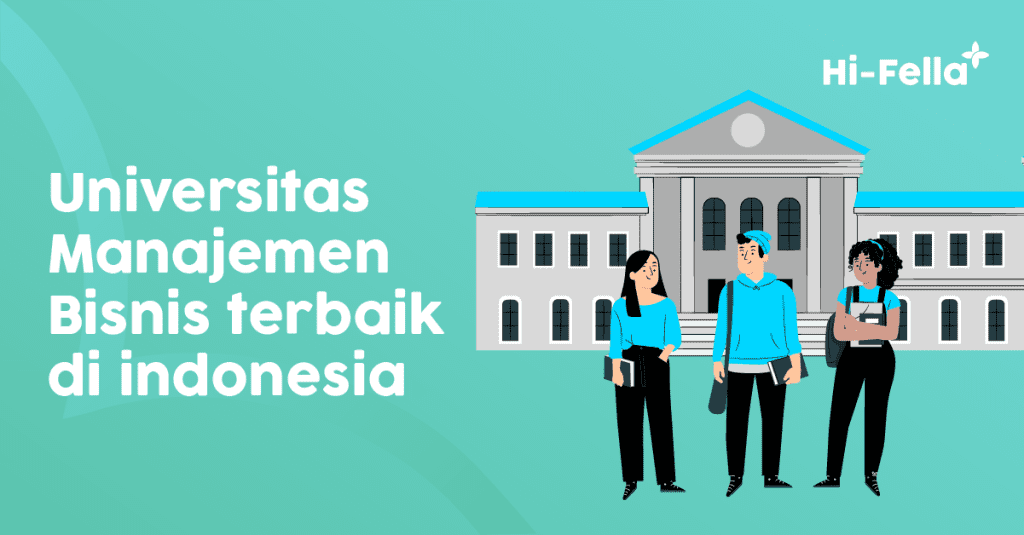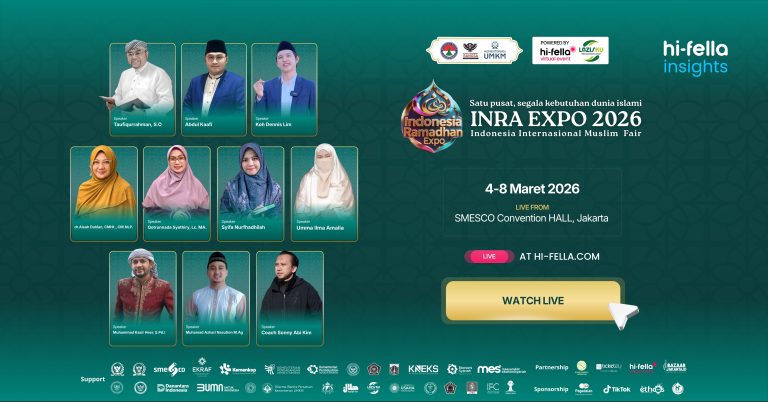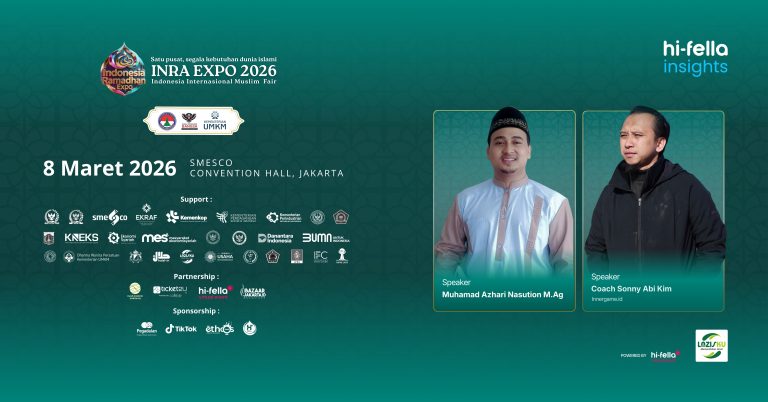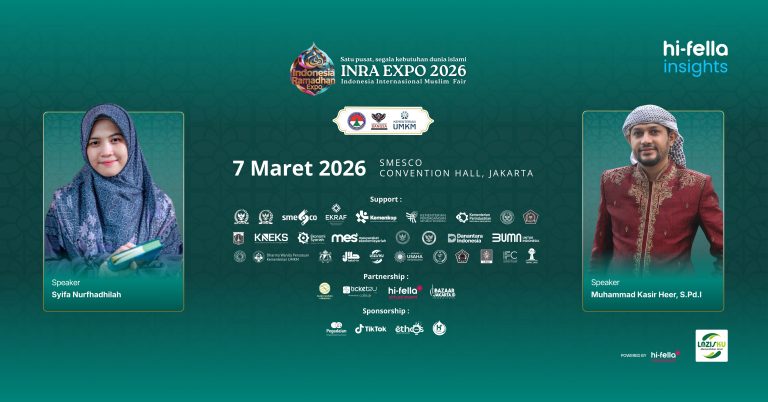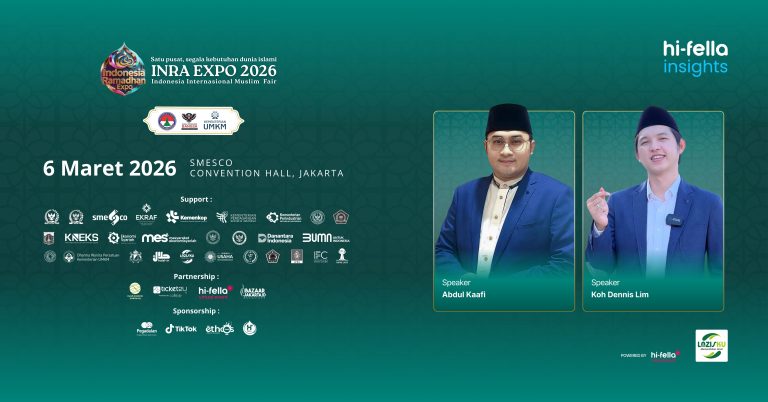Salah satu langkah awal yang penting dalam menyongsong karier sukses di dunia bisnis adalah memiliki pendidikan yang mumpuni. Memiliki gelar merupakan salah satu cara untuk itu, terutama gelar dalam jurusan Manajemen Bisnis. Memutuskan universitas mana yang akan dijadikan sekolah lanjutan mungkin bisa memusingkan. Namun, tidak perlu khawatir. Kami telah merangkum rekomendasi universitas di Indonesia, baik negeri maupun swasta, terbaik untuk program studi Manajemen Bisnis. Temukan universitas terbaik di Indonesia untuk jurusan Manajemen Bisnis dan persiapan karier bisnis kamu di sini.
Apa itu program studi Manajemen Bisnis?
Program studi Manajemen Bisnis adalah bidang studi yang melibatkan dua area: manajemen dan bisnis. Program studi ini mempelajari tentang perancangan, pengoperasian, dan pengelolaan suatu usaha atau bisnis. Tujuannya tentu agar kita bisa menjadi manajer yang bisa mengambil keputusan yang efektif demi mengatur dan mencapai tujuan bisnis yang mumpuni.
Jurusan Manajemen Bisnis dapat ditemukan di beberapa universitas ternama di Indonesia. Jurusan ini ada di Institut Teknologi Sepuluh November, Universitas Bina Nusantara, dan Universitas Pelita Harapan.
Institut Teknologi Sepuluh Nopember
Institut Teknologi Sepuluh Nopember atau yang biasa disebut ITS merupakan salah satu perguruan tinggi negeri di Surabaya. ITS memiliki peringkat 621-630 sedunia berdasarkan QS World University Rankings 2024. ITS bisa dikategorikan sebagai salah satu universitas Manajemen Bisnis terbaik di Indonesia. ITS memiliki program studi S1 Manajemen Bisnis di Fakultas Desain Kreatif dan Bisnis Digital. Ada 5 jalur masuk yang bisa dipilih jika kita mau menjadi mahasiswa program studi Manajemen Bisnis ITS yaitu SNBP (Seleksi Nasional Berdasarkan Prestasi), SNBT (Seleksi Nasional Berdasarkan Tes), Mandiri Kemitraan, Mandiri Prestasi, dan Mandiri Umum.
Biaya kuliah di Manajemen Bisnis ITS tergantung dari jalur masuk mana yang calon mahasiswa ikuti. Untuk jalur masuk SNBP tidak dikenakan biaya pendaftaran, sementara untuk jalur masuk SNBT dikenakan biaya tes sebesar Rp200.000. Bagi yang masuk di jalur SNBP dan SNBT, uang kuliah tunggal yang harus dibayarkan per semesternya berkisar antara Rp500.000 sampai Rp7.500.000, tergantung kesanggupan ekonomi masing-masing calon mahasiswa.
Untuk jalur Mandiri Prestasi dikenakan biaya pendaftaran sebesar Rp250.000 dan uang kuliah tunggal berkisar antara Rp7.500.000 sampai Rp12.500.00 tergantung kesanggupan ekonomi masing-masing calon mahasiswa. Untuk jalur Mandiri Umum dan Kemitraan, biaya pendaftaran dan uang kuliah tunggal yang dibayarkan sama jumlahnya, hanya saja terdapat biaya tambahan untuk biaya tes masuk. Mata uji tes masuknya ada tiga yaitu TPA, TKB Saintek, dan TKB Soshum yang masing-masing mata ujinya dikenakan biaya sebesar Rp100.000. Terdapat biaya tambahan lain bernama SPI (Sumbangan Pengembangan Institusi) dan SPA (Sumbangan Pengembangan Akademik) untuk dua jalur mandiri ini. Untuk program studi Manajemen Bisnis sendiri, biaya SPI untuk jalur Mandiri Umum adalah sebesar Rp37.500.000 dan untuk jalur Mandiri Kemitraan biayanya sesuai dengan Perjanjian Kerjasama antara ITS dan institusi mitra, dibayarkan satu kali selama terdaftar sebagai mahasiswa. Untuk biaya SPA jalur Mandiri Umum adalah sebesar Rp7.500.000 dan Mandiri Kemitraan sebesar Rp10.000.000, dibayarkan pada semester 2 sampai semester 6 berkuliah.
Fasilitas di program studi Manajemen Bisnis ITS tak ubahnya fasilitas pada universitas kebanyakan. Terdapat ruang kelas, ruang sidang, ruang baca, ruang dosen, laboratorium, galeri investasi, fasilitas IT, fasilitas umum seperti kantin dan lahan parkir untuk motor dan mobil, juga SI-MB dan MB-APP sebagai portal mahasiswa Manajemen Bisnis ITS.
Universitas Bina Nusantara
Universitas Bina Nusantara atau yang biasa disebut Binus merupakan salah satu perguruan tinggi swasta yang ada di Indonesia. Binus memiliki peringkat 1001-1200 QS World University Rankings 2024. Binus bisa dikategorikan sebagai salah satu universitas Manajemen Bisnis terbaik di Indonesia. Di Binus, terdapat tiga program studi S1 serupa yaitu Business Management di Kampus Bekasi, International Business Management dan International Business Management – Global Class di Kampus Alam Sutera. Khusus untuk International Business Management – Global Class terdapat beberapa 17 mitra universitas luar negeri yang bekerja sama dengan Binus yang tersebar di Amerika, Eropa, dan Asia.
Untuk tahun 2024, biaya kuliah untuk program studi Business Management sebesar Rp162.920.000. Biaya pengembangan yang harus dibayarkan sebesar Rp38.000.000. Jadi, total biaya yang harus dibayarkan bila ingin menjadi mahasiswa untuk program studi ini sebesar Rp200.920.000. Sementara itu, biaya kuliah untuk program studi International Business Management adalah sebesar Rp183.040.000. Biaya pengembangannya sebesar Rp43.000.000 sehingga total biaya yang harus dikeluarkan sebesar Rp226.040.000. Untuk program studi International Business Management – Global Class, biaya kuliahnya sebesar Rp247.220.000 dengan biaya pengembangan sebesar Rp43.000.000 sehingga jumlah biaya yang harus dikeluarkan adalah sebesar Rp290.220.000.
Universitas Prasetiya Mulya
Universitas Prasetiya Mulya atau yang biasa disebut Prasmul merupakan salah satu perguruan tinggi swasta di Indonesia. Prasmul bisa dikategorikan sebagai salah satu universitas Manajemen Bisnis terbaik di Indonesia. Di Prasmul terdapat program studi S2 jurusan Manajemen Bisnis. Untuk para pebisnis profesional yang ingin melanjutkan studi S2, jurusan ini akan sangat cocok.
Karena merupakan program pascasarjana, jurusan Manajemen Bisnis di Prasmul hanya terdiri dari 5 terms saja. Ini adalah program paruh waktu bagi mereka yang telah menyelesaikan gelar sarjana dengan pengalaman kerja minimal 2 tahun. Untuk kurikulumnya sendiri, program studi ini terdiri dari 42 kredit, dengan program matrikulasi di awal perkuliahan kemudian dilanjut sampai trimester 5. Program ini dimulai setiap bulan Mei dan Oktober. Biaya pendaftarannya sebesar Rp500.000 dan biaya komitmennya sebesar Rp5.000.000 mengurangi total biaya pendidikan. Sehingga total biaya pendidikannya sebesar Rp131.120.000, sudah termasuk makan malam atau snack tetapi tidak termasuk buku teks, parkir, loker, fasilitas printer di Business Center (PM Store) dan Study Abroad (mata pelajaran pilihan).
Setelah lulus dari universitas Manajemen Bisnis terbaik di Indonesia, ayo mulai berbisnis dengan Hi-Fella! Di Hi-Fella kamu bisa menemukan komunitas bisnis dari seluruh penjuru dunia yang berguna untuk menunjang bisnismu. Hanya dengan mengunduh aplikasi Hi-Fella di App Store atau Play Store dan membuat akun, kamu sudah bisa bergabung dengan komunitas bisnis yang menyatukan supplier, buyer, dan konsumen dari berbagai negara. Yuk, daftar sekarang!


